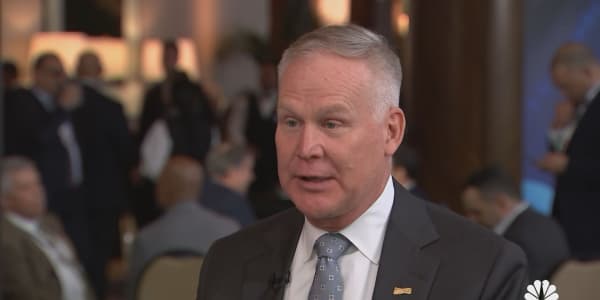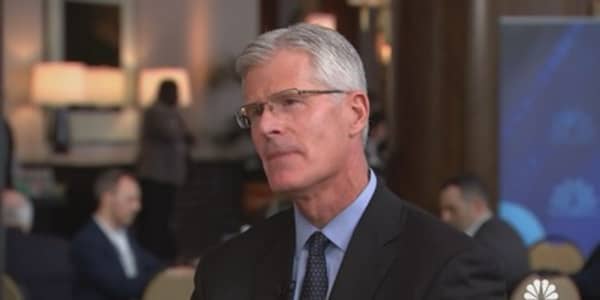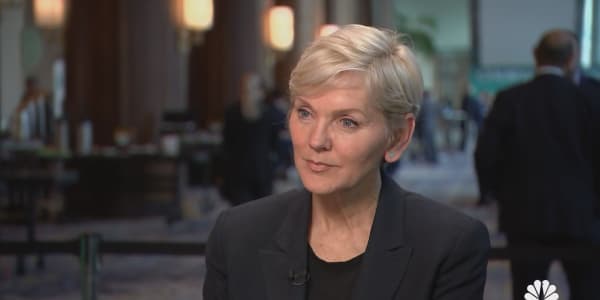
Tariffs on steel and aluminum will likely have only a small effect on General Motors' bottom line, which the automaker can "more than offset," CEO Mary Barra told CNBC Wednesday.
GM sources 90 percent of its steel and the majority of its aluminum from the United States, Barra told CNBC's "Power Lunch" in an interview from the annual CERAWeek energy conference in Houston. The automaker would find ways to save elsewhere, but there is a larger concern for the industry.
"I think you do have to look at if changes occur that drive the cost up, it will have a direct impact on demand, because there is an affordability issue with cars we have to stay cognizant of," Barra said. "If there is an increase to the point that people stop buying cars and used cars, that will affect jobs."
GM said it still needs to see what the government's next move will be.
"Tell me exactly what is going to happen, and then we will figure out what the outcome should be," she said.
Barra also said she thinks the North American Free Trade Agreement needs to be "modernized" to account for the increasing level of technology found in cars today. GM also announced at CERAWeek that it is ramping production of its all-electric Chevy Bolt later this year as part of its path to a zero-emissions future.
And she does worry about a trade war.
"Give us a level playing field and let us compete, and we will win the customer," she said.
President Donald Trump has suggested the U.S. should impose a 10 percent tariff on imported aluminum and a 25 percent tariff on steel. The administration has not released a formal plan, but that could change later this week.
The proposed tariffs are still in a state of limbo, Kristin Dziczek, director of the Industry, Labor & Economics Group at the Center for Automotive Research, told CNBC.
"It is important to point out that none of this is policy yet," she said. But she added that, so far, the process has been quite different from what the industry has been accustomed to in the past.
The tariffs are being proposed under Section 232 of the Trade Expansion Act of 1962. That provision typically is meant to allow the Commerce Department to impose a tariff on any material that might be essential to national security.
But when Section 232 has been invoked in the past, it is usually pretty specific, targeting a specific metal originating from a particular trading partner, Dziczek said. Even the grade of the material is often specified.
But this is far broader. It names no specific trading partner and includes all steel and aluminum coming into the United States, she said.
There is a larger problem looming though, Dziczek said. There is already a global oversupply of steel, and while tariffs might cause a supply shortage in the short term they could lead U.S. producers to boost capacity, eventually further contributing to the oversupply in the global market.
General Motors' U.S. rival Ford has said in recent months that it has had trouble managing the effects of swings in metals prices.
More from CERAWeek:
GM CEO Barra says transition to EVs won't take decades
The little industry that may take a big bite out of oil demand
Fed's Kaplan says market doesn't appreciate risk of oil price spike





